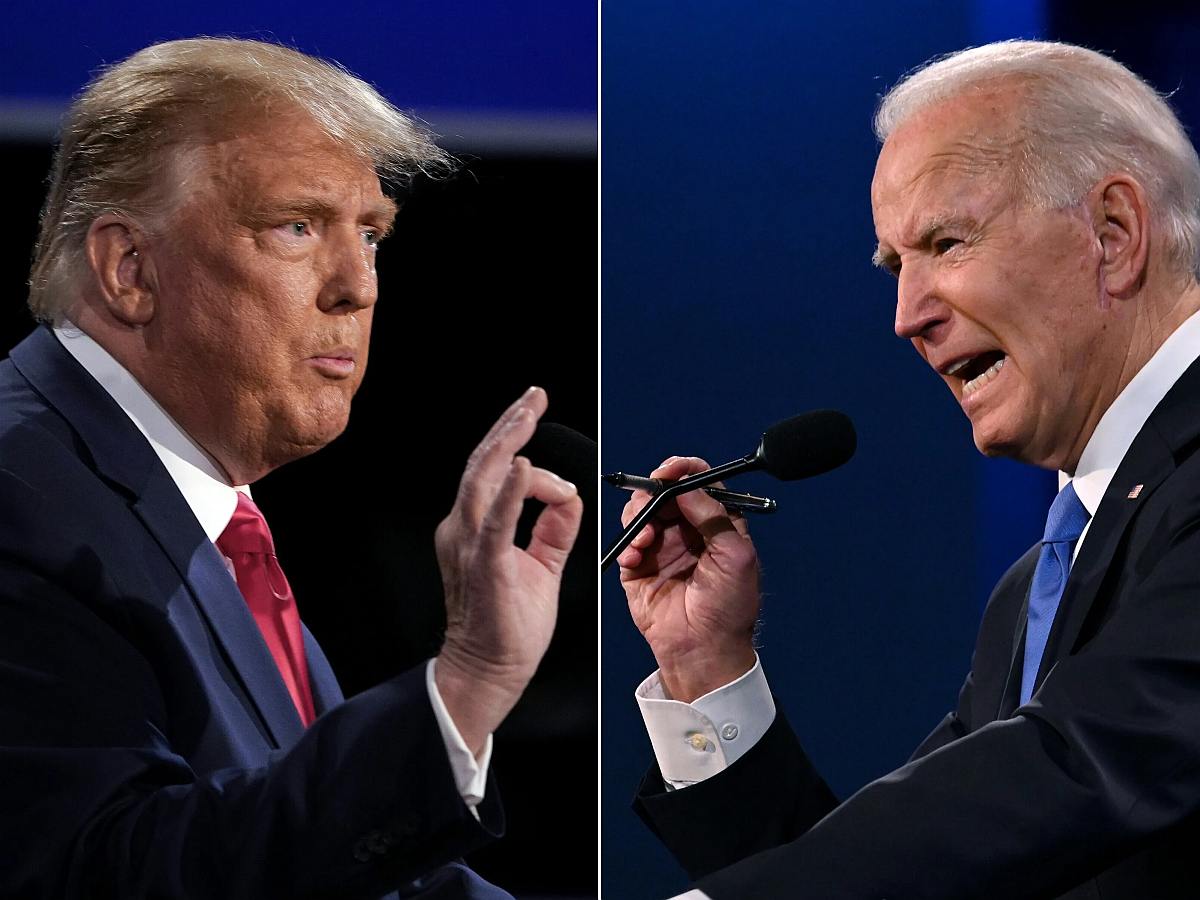It’s time for another check-in with Allan Lichtman, the American University professor famous for electoral predictions based on his “13 Keys” to unlocking the presidency.
Lichtman has been mostly correct, with few exceptions, during the modern presidential era. Most famously, Lichtman predicted Donald Trump’s victory in 2016 against the grain of conventional wisdom. Lichtman also predicted Joe Biden’s victory in 2020. Before that, Lichtman called both of Barack Obama’s victories and George W. Bush’s re-election in 2004. In 2000, Lichtman’s prediction keys put Al Gore in the White House, but voters did not, so it’s not an exact science, of course.
Back in July, Lichtman was not quite ready to predict the outcome of 2024. However, it’s been nearly six months, has anything changed?
Here’s Lichtman explaining, in his own words, how the keys work and which keys will likely decide the outcome next year assuming Joe Biden remains as the Democratic Party nominee:
The video above came from a recent interview with The National News where Lichtman shared more insight on where things stand heading into 2024:
At this point, the main crux of Lichtman’s burgeoning prediction is that Democrats start with an advantage of already holding the White House. With Biden as the incumbent and the lack of a messy primary, there is less chance for implosion on the Democratic side. Lichtman says Democrats should stick with Biden despite his flaws and age:
Prof Lichtman cautioned that although it might be tempting for Democrats to run someone else, doing so would jeopardise several of the keys.
He also pointed to the potential Republican challenger, Donald Trump, aged 77, as having a similar vulnerability.
“Look, it’s not like Biden might be running against a 45 year old,” Prof Lichtman said.
Worth noting is that, although he trails in the polls, if Republican Florida Governor Ron DeSantis becomes the nominee, he would be 44 years old.
Either way, Prof Lichtman said disregarding the importance of incumbency would be a self-inflicted electoral wound from which the Democrats might not recover.
It also remains to be seen how the appointment of a special council to investigate Hunter Biden, Mr Biden’s son, might play out in the public eye leading up to the election day, which could cause another key to turn against him.
If the remaining keys Joe Biden needs to turn hinge on the economy and foreign policy, it’s hard to see how he will end up unlocking the White House for a second term. Furthermore, there is growing social unrest on Biden’s side of the aisle concerning the Hamas terror attack against Israel on Oct. 7, 2023. The Democratic Party has a problem with anti-semitism running through its base causing unrest and backlash against the Biden administration’s support for Israel.
Furthermore, if Robert F. Kennedy Jr. continues to emerge as a viable third-party option, that could be something outside of Biden’s control. Also, with an ongoing war in Ukraine and now in the Middle East, there are ample opportunities for possible military successes or failures. One documented military failure of Biden was the botched Afghanistan exit. Though many Americans supported the withdrawal in concept, the flawed execution caused mayhem and left the country back in the hands of the Taliban along with 13 dead U.S. service members.
The bottom line, at the moment, is that Lichtman is sitting tight on the prediction front until more time plays out.
As a refresher, here are Lichtman’s 13 Keys to the White House:
- Party mandate: After the midterm elections the incumbent party holds more seats in the US House of Representatives than it did after the previous midterm elections.
- Contest: The candidate is nominated on the first ballot and wins at least two-thirds of the delegate votes.
- Incumbency: The sitting president is the party candidate.
- Third-party: A third-party candidate wins at least 5 percent of the popular vote.
- Short-term economy: The National Bureau of Economic Research has either not declared a recession, or has declared it over prior to the election.
- Long-term economy: Real per-capita economic growth during the term equals or exceeds the mean growth during the previous two terms.
- Policy change: The administration achieved a major policy change during the term comparable to the New Deal or the first-term Reagan Revolution.
- Social unrest: There is no social unrest during the term that is comparable to the upheavals of the post-civil war Reconstruction or of the 1960s, and is sustained or raises deep concerns about the unraveling of society.
- Scandal: There is no broad recognition of a scandal that directly touches upon the president
- Foreign or military failure: There is no major failure during the term comparable to Pearl Harbour or the Iran hostage crisis that appears to significantly undermine America’s national interests or threaten its standing in the world.
- Foreign or military success: There is a major success during the term comparable to the winning of the Second World War or the Camp David Accords that significantly advances America’s national interests or its standing in the world.
- Incumbent charisma: The incumbent party candidate is a national hero comparable to Ulysses Grant or Dwight Eisenhower or is an inspirational candidate comparable to Franklin Roosevelt or Ronald Reagan.
- Challenger charisma: The challenger party candidate is not a national hero comparable to Ulysses Grant or Dwight Eisenhower and is not an inspirational candidate comparable to Franklin Roosevelt or Ronald Reagan.
Donate Now to Support Election Central
- Help defend independent journalism
- Directly support this website and our efforts
